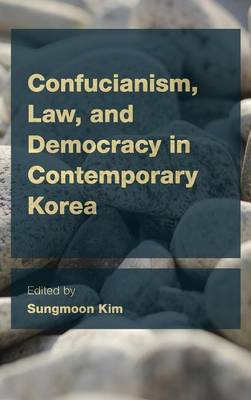CEACOP East Asian Comparative Ethics, Politics and Philosophy of Law
1 total work
Confucianism, Law, and Democracy in Contemporary Korea
Published 1 January 2015
Comparative political theory has grown into a recognized discipline in its own right in the last two decades. Yet little has been done to explore how political theory engages with the actual social, legal, and political reality of a particular polity. East Asians are complexly conditioned by traditional Confucian norms and habits, despite significant social, economic, and political changes in their contemporary lives. This volume seeks to address this important issue by developing a specifically Confucian political and legal theory.
The volume focuses on South Korea, whose traditional society was and remains the most Confucianized among pre-modern East Asian countries. It offers an interesting case for thinking about Confucian democracy and constitutionalism because its liberal-democratic institutions are compatible with and profoundly influenced by the Confucian habit of the heart. The book wrestles with the practical meaning of liberal rights under the Korean Confucian societal culture and illuminates a way in which traditional Confucianism can be transformed through legal and political processes into a new Confucianism relevant to democratic practices in contemporary Korea.
The volume focuses on South Korea, whose traditional society was and remains the most Confucianized among pre-modern East Asian countries. It offers an interesting case for thinking about Confucian democracy and constitutionalism because its liberal-democratic institutions are compatible with and profoundly influenced by the Confucian habit of the heart. The book wrestles with the practical meaning of liberal rights under the Korean Confucian societal culture and illuminates a way in which traditional Confucianism can be transformed through legal and political processes into a new Confucianism relevant to democratic practices in contemporary Korea.
